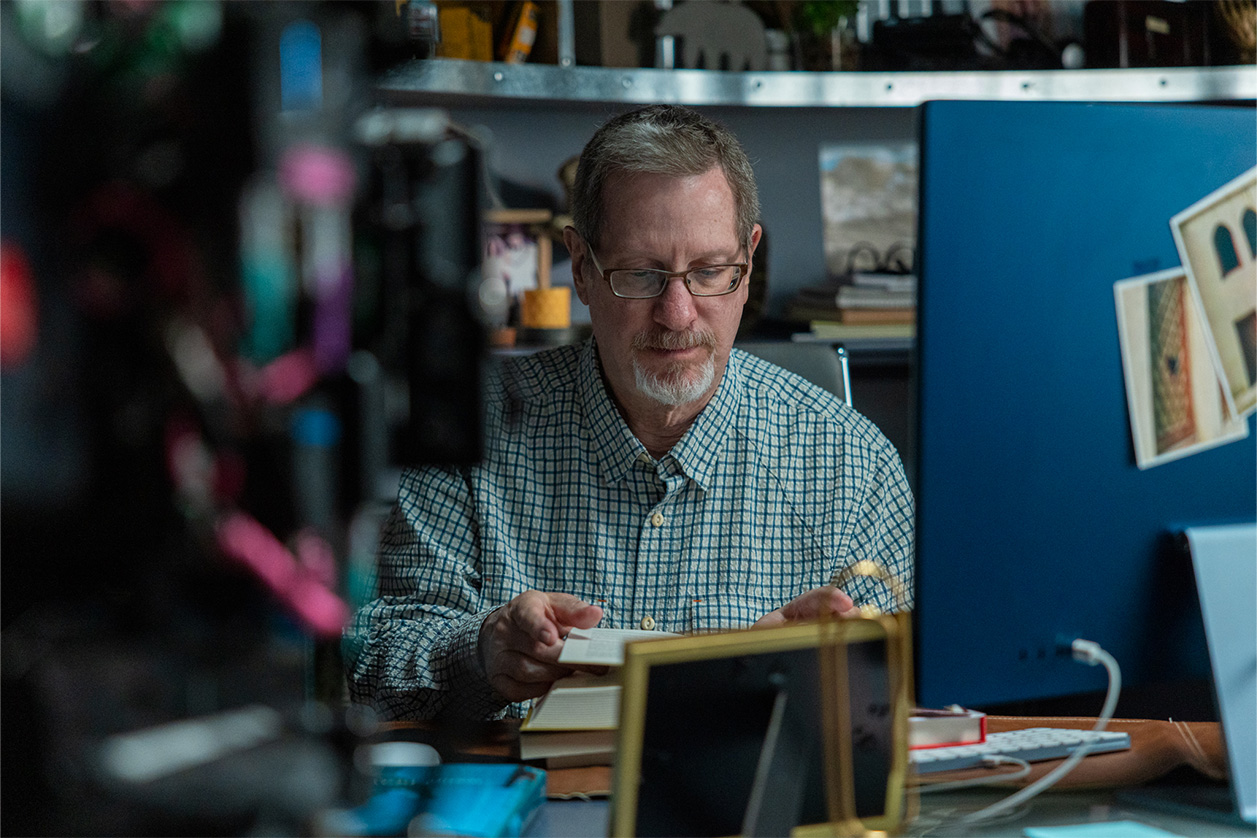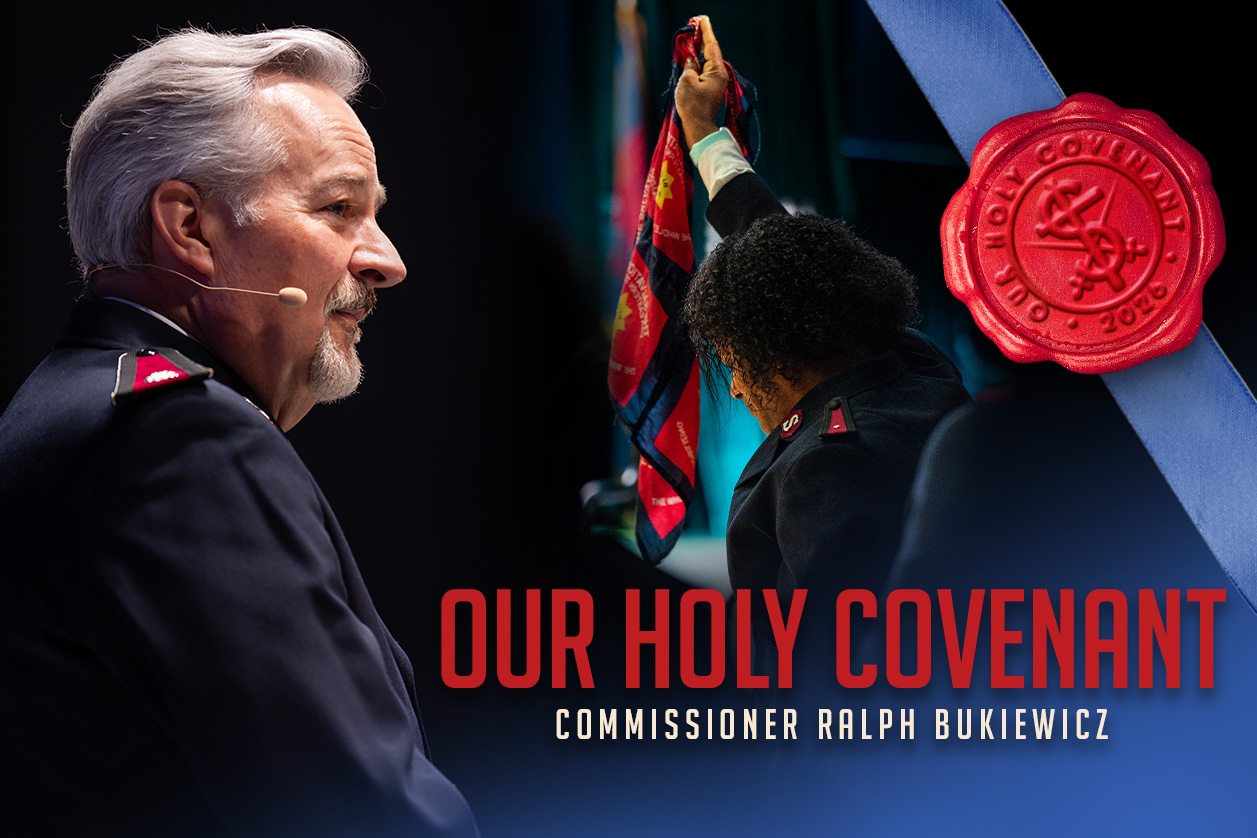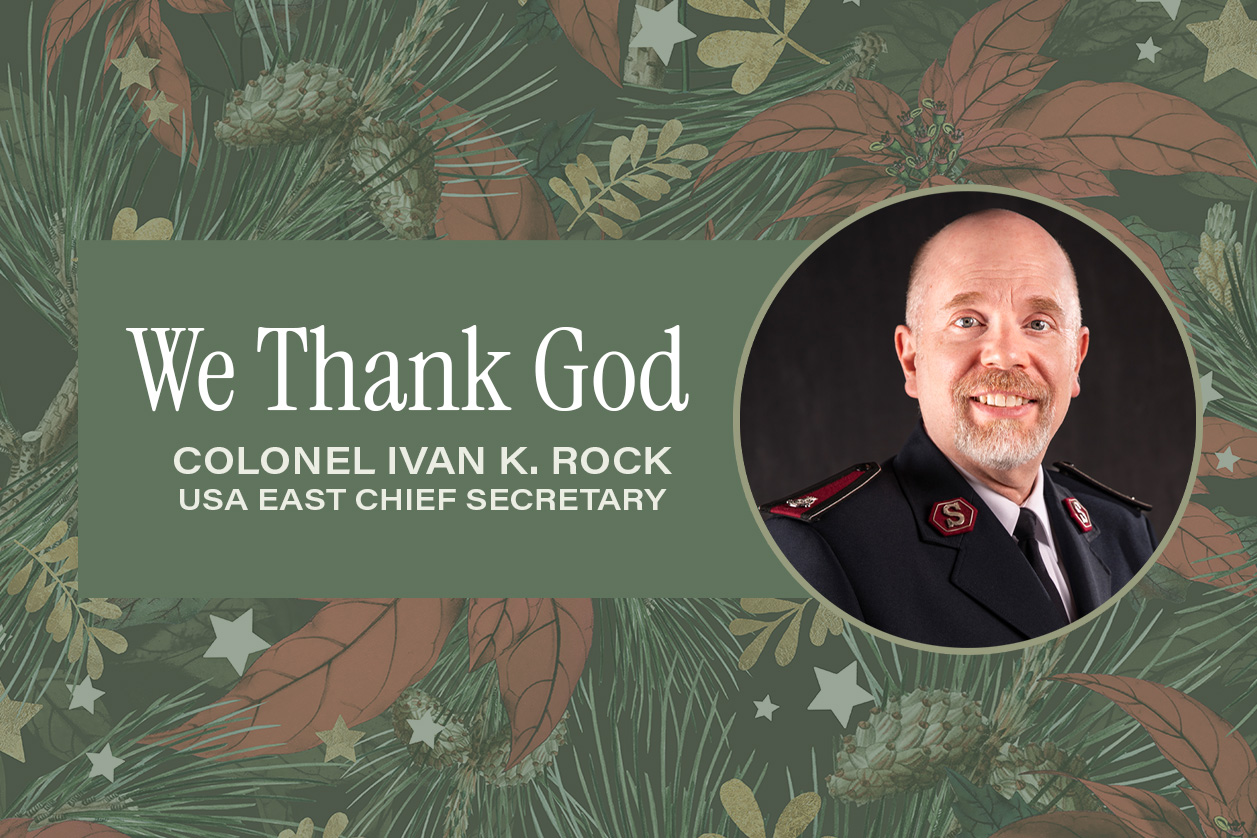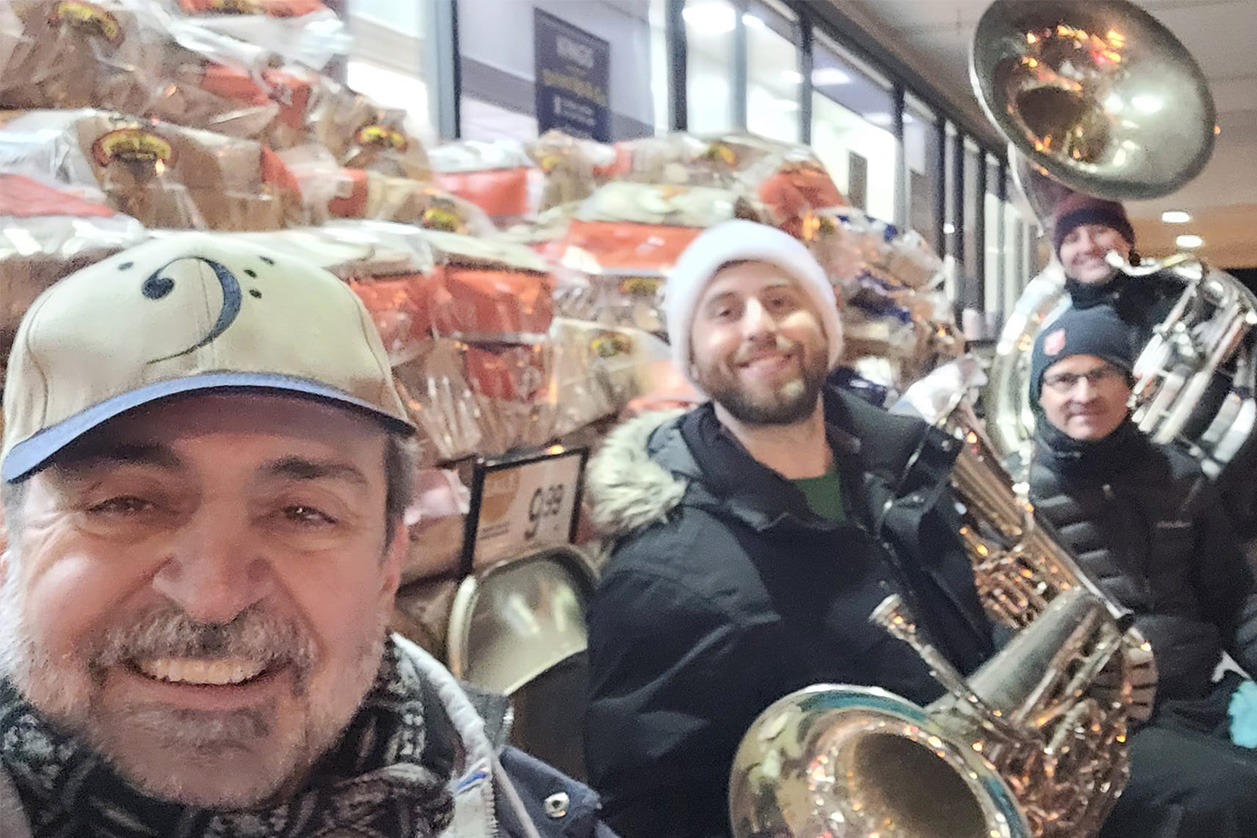
Boundless Grace
by Warren L. Maye
Grace Vandecruze immigrated to the United States from Guyana, South America; endured homelessness; and became a successful entrepreneur. Today, she is an author, motivational speaker, and strategic advisor to more than $25 billion of transactions in the insurance industry, including the sale of a company to Warren Buffett.
Vandecruze has climbed many mountains in her personal life and literally in the world. Mt. Everest is among the 25 summits she’s reached. In an exclusive interview with SACONNECTS magazine, Vandecruze talks about her struggle during hard times, and the help she received from her loving family, The Salvation Army, and from God.
From poverty to purpose
Orange and yellow flames rose into the air as a Brooklyn, N.Y., brownstone, shrouded in billowing smoke, burned. New York’s Bravest battled the inferno as the Vandecruze family of 7 siblings and both parents, stood on the sidewalk in East Flatbush and watched. They felt helpless as their home and belongings turned to wet trash and smoldering ash.
Among the siblings was 21–year old Grace Vandecruze, the second oldest. “At the time of the fire, the solution that we were given by everyone, was, as a family of nine, the best thing we should do would be to separate. Later, after we got ourselves back on our feet, we could then reconvene.
“But that’s when my dad stepped in,” Vandecruze continues. “He said, ‘No. We’re going to stay together as a family.’ That’s when we went to the homeless shelter.”
Everything they could salvage from the inferno easily fit in a black, 13–gallon trash bag.
At the shelter, Grace, her siblings, mom, and dad, slept on cots the size of yoga mats.
In a neighborhood known for its crime, drugs, and abandoned buildings, the family coordinated their schedules so that they’d always be with each other or a friend while on the street or at the shelter. They also asked God to protect them from danger.
“I think being in that homeless shelter sort of shocked me into refocusing on my goals,” Grace remembers. “I really doubled down on my schoolwork and graduated on time.
“I didn’t spend a lot of time mingling or interacting in the shelter. I mean, I tell you, I was scared; I was terrified in that shelter. But for me, I was determined that while I was in a shelter, the shelter would never be in me.”
Those were difficult and dark days for the Vandecruze family. Grace’s dad took on odd jobs to help make ends meet. They lived from paycheck to paycheck. “Many times, there was more month than money,” she recalls.
One day, Grace’s mom was so desperate for even pocket change, she walked the sidewalks in Brooklyn looking for coins on the street. Grace remembers, “She said, ‘Oh, God, let me please find at least a dollar today. Let me find a dollar today.’ I mean, she prayed for just deliverance from poverty. Then, she came back, and said, ‘Grace, do you know what happened? I found a dollar!’”
The love of family
During this time, Grace bonded with Pauline Bristol and Michael Bristol, her mom’s cousins. Pauline ran the daycare center at The Salvation Army church in Bushwick, Brooklyn. In the 1980s, several of Grace’s siblings visited the center and participated in its programs and activities.
“I recall dropping my sister off at the Center for daycare, picking her up, and the amazing confidence builder that was for her. It was a nourishing environment,” says Grace. “I remember one day when I took her to the center, and she said to me, ‘Grace, I have no friends.’ I said, you don’t?’ She said, ‘No. I have no friends.’ But I said, ‘Let’s go anyway. I’m sure you have some friends, Denise.’
“So, when I returned to pick her up early, the kids were all sleeping. I was getting her ready, but trying not to disturb anyone, as we were way across the room from the exit.
“But as we were leaving, these children, one–by–one would say, ‘bye, Niecy!’ That’s what they called her. We suddenly heard all these voices from around this darkened room. When we got outside, I said, ‘Denise, look at all the friends you have!’ and her face just bloomed!”
Vandecruze also remembers the passion Pauline brought to her work. “I could tell that she viewed that daycare as a ministry. We were constantly visiting that center for food, and to meet with family.”
When the family finally settled down in their new home on Hancock Street, The Salvation Army proved to be a reliable source for furnishings.
Grace’s mom was the second of nine children. Grace says that her grandmother, Hagar Delph, was a primary source of strength during those times. Grace calls her “the source of my inner confidence and strength,” and credits her brilliant example of compassion, grace, and abundance mindset as a lasting influence.
Despite the family’s limited resources and space, Hagar found room in her heart to adopt five additional girls after their own mother passed. While a household of 14 children was always a challenge, Hagar’s empathy and compassion made it possible to meet their needs.
Grace, who is today the third of 52 grandchildren, says, “My grandmother lifted me in love, praise, and blessings. Her spirit of gratitude, forgiveness, and grace served as a healing balm not only to me, but to everyone who has been in her presence. Her actions demonstrated unconditional love, and her indomitable spirit flows through my veins; as such, I am a living legacy of this.”
Hagar’s most treasured words to Grace were “Believe beyond your limits.”
A knack for numbers
In 1985, Grace received her Bachelor of Business Administration in accounting from Pace University and began her career as a certified public accountant. In that role, she quickly discovered that she had an amazing knack for numbers. “It turned out that accounting was as easy as breathing for me.”
This inspired her to go further. With the help of mentors who praised her for her outstanding work, she applied and was accepted into Wharton Business School, University of Pennsylvania, where she received a rigorous, eye–opening education. “Those were the best two years of my life,” Vandecruze remembers.
“Being there was inspiring on several levels. It’s an environment where it is clearly a pressure cooker. It really challenged me to do my best and I love challenges. Wharton has a reputation of being very quantitative” she remembers.
“At the orientation for housing, I looked across the room and the only African American face I saw was a young lady. We sort of approached each other, and asked, ‘You need a roommate?’ and so we roomed. I had a great experience rooming with her.
“As I was going through this environment, I knew it was unique; the most amazing, intense laboratory of intellectual learning and networking I had ever had in my life.” There were 64 countries represented in her class of 750 students.
Mountain climbing mirrors life
After her graduation, Vandecruze was surprised when a Wharton School professor invited her back to learn something even more challenging that would literally take her to the top. Grace enlisted in a 14–day expedition up a 20,000–foot peak in Bhutan in Southern Asia, led by that professor who urged executives to leave their comfort zones and build their leadership skills. Today, she has climbed 25 mountain peaks on three continents.
“My takeaway from doing that is how much mountain climbing mirrors life,” Vandecruze says. “Why? Because mountain climbing and life are daunting things.
“For example, I have a friend who just attempted to climb Mt. Kilimanjaro in Africa a month ago. The night before she left, she said, ‘I am so, so, so nervous and scared. Am I supposed to feel this way?’
“I told her, ‘If you were not scared and nervous, you would not be human. You should be scared and nervous. It’s an ambitious goal and accomplishment.’ I do think in life we need to challenge ourselves to step outside our comfort zones.”
Vandecruze is quick to compare mountain climbing to facing career challenges. “A year ago, I sold an insurance company to Warren Buffett. The CEO and seller of the company, said, ‘I think Buffett is interested in us.’ So, I said, ‘Yes I’m going to call him.’

Grace Vandecruze (left) and three colleagues pause at a base camp on Mt. Everest.
“I got Buffett’s number, but woke up the next morning feeling excited but also nervous. I knew that was a great opportunity and that I have to continually challenge myself to meet and exceed expectations and goals. There is no place for complacency. So that’s the first point about climbing mountains; it’s how we stretch and challenge ourselves to plan and execute our goals.”
Vandecruze also says that the mountain’s rugged and intimidating landscape mirrors life. “You can have the best laid plans, but just be prepared to be disrupted at each step. I think we are so hard wired for certainty and for comfort that being in an environment where it is so rapidly fluid and uncertain and the storms are coming in from different directions, it is a great metaphor for how we choose to move forward in such daunting environments.
“In my mind, I’m thinking, how much longer is the climb? How much farther is the summit? Sometimes I look up and by looking up and seeing how far the summit is, it can become even more daunting because I’m already exhausted while I’m looking up.”
Staying focused on the next step
“So, I found the key to success is really staying focused on my next step. I strive to make my next step, my best step. You’ve got to focus on it in a step–by–step manner. On Mt. Kilimanjaro in Tanzania, a Swahili term that the guys tell all the climbers is, poly poly.
“The simple definition is ‘slow, slow.’ The more complicated definition is, ‘be careful before you take the next step. Measure it carefully, but once you start to take that step, take it with determination. Take it from precision. Take it with courage, and climb the mountain, step by step.’ This is the metaphor I use for life.”
Encouraging others to climb
Recently, Vandecruze participated in a discussion among a panel of black women who currently sit on corporate boards. They presented a revealing talk to an audience of girls of color.

Grace participates in the ringing the opening bell ceremony for the New York Stock Exchange.
The girls’ faces expressed how moved and even stunned they were when Vandecruze looked into their eyes, told her compelling story, and then said to them, “If a person like me can go from being homeless to this stage, then there’s nothing in the world you can’t do.”
In her book, Homeless to Millionaire: 6 Keys to UPLIFT Your Financial Abundance, Vandecruze stresses how learning to manage one’s emotions leads to better management of money. As an example, she refers to Jesus’ Parable of the Talents in Matthew 25:14–30, and how optimism, faithfulness, and stewardship can lead to one achieving multi–generational wealth.
Early in the book, Vandecruze writes, “I am here to remind you that we hold the pen to plan and create our financial future. We have a unique opportunity to rewrite what our future will be. Words such as theft, misappropriation, and homelessness will not be in our future chapters—not in this book and not in our lives! Our future chapters will include abundance, investments, wealth, mastery, grace, love, and legacy. Let’s begin a financial abundance climb.”
Grace Vandecruze is founder and managing director of Grace Global Capital, LLC. Her book, Homeless to Millionaire: 6 Keys to UPLIFT Your Financial Abundance, is available on Amazon.com.
Read more from the latest issue of SAconnects.




